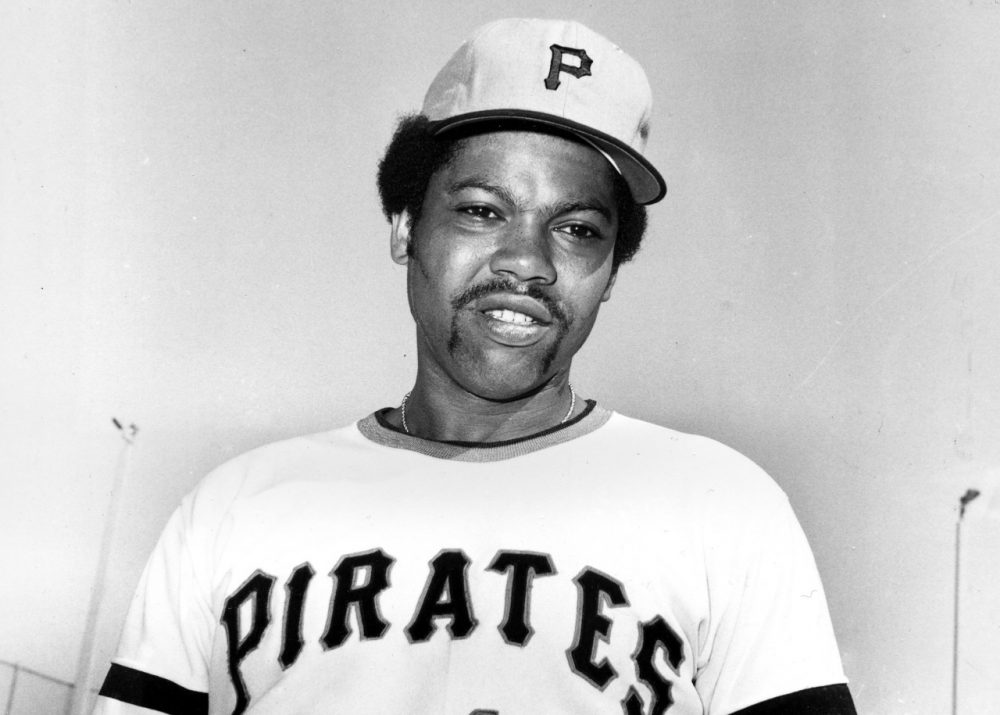Advertisement
'No No' Chronicles Odd No-Hitter — And A Fascinating Man

Mention Dock Ellis to most baseball fans of a certain age, and they'll all have the same response: "Oh, yeah. He's the guy who threw a no-hitter back in 1970 after he'd dropped LSD."
In No No: A Dockumentary, his new film about Ellis, Jeffrey Radice certainly doesn't shy away from Dock's singular achievement in presenting the story of a man who was fascinating for all sorts of reasons.
Bill Littlefield spoke to Radice and Tom Reich, the longtime agent of Dock Ellis, who died in 2008.
Highlights From Bill's Conversation With Jeffrey Radice And Tom Reich
BL: Jeffrey, let's go right to the game that gave you your title. The 1970 "gem" was an odd no-hitter because it featured eight walks and a hit batsman. I wonder, how many people at the game knew what they were watching?
Dock spent a lot of time sober...but he was a wild dude when he was into his rather wide social life.
Tom Reich, former agent
JR: I don't think anyone at the game knew what they were watching. The way that that story broke, interestingly, David Lander, who's the actor who played Squiggy on "Laverne & Shirley," among other things — he was speaking to Dock in 1984, talking about how wild Dock was, and Dock said to him, "Well, you should have seen it the way that I saw it." And that was kind of how the story became popularized.
BL: Dock Ellis says in the film that he was rarely sober during the season. In fact, to hear him tell it, he was rarely sober during his baseball career. Tom, is Dock's characterization of his own behavior consistent with the man you knew back in the early '70s?
[sidebar title="Dwight Gooden Looks Back" width="630" align="right"]World Series champ and Cy Young winner Dwight 'Doc' Gooden joined us to discuss his career and his battles with drug addiction.[/sidebar]TR: Dock didn't do drugs in front of straight people. So there's a lot of hyperbole that goes with the territory. But when he pitched, as was very, very common in those days, players took a lot of speed. Dock spent a lot of time sober and was a very, very intelligent guy. But he was a wild dude when he was into his rather wide social life.
BL: The final triumph of Dock Ellis had nothing to do with his pitching — and certainly nothing to do with his drug and alcohol use. He eventually got clean and sober and he went on to help other men and women reach that goal. Jeffrey, should somebody within the Pirates organization or elsewhere have been able to help Dock Ellis to get help himself before he finally got it, after he was out of baseball?
JR: If the people that were closest to Dock didn't really understand then I don't think that you can ask the organization that he was working for to. I think it's important to emphasize what Dock was doing for the last three decades of his life because to me that was what brought me to the film and why I felt like this story was worth telling.
Dock took the lessons that he learned and applied them in a forceful manner. The same type of personality he had as a player he was now using in his drug counseling. So he was out there, in the trenches, doing yeoman's work, one individual at a time, trying to help these guys.
"No No: A Dockumentary" Trailer:
Bill's Thoughts On No No: A Dockumentary
The recently released documentary about former major league pitcher Dock Ellis is fascinating.
Ellis, who died in 2008, was an exceptionally talented and grandly flamboyant presence for the Pittsburgh Pirates during the early 1970s. He broke into the headlines for several reasons, not all of them related to wins and ERA. When he made the National League All-Star team in 1971, he predicted that Major League Baseball would never allow two black aces to face each other, thus essentially guaranteeing that he and Vida Blue would be the starters.
He pushed the limits in many other ways as well, some of them rather silly. One example: he wore hair curlers under his baseball cap. But his work on behalf of equal rights and fair treatment for minority players attracted the attention of many, including Jackie Robinson, who congratulated Ellis for the stands he took and encouraged him to keep talking.
In 1984, Dock Ellis revealed that the no-hitter he'd tossed in 1970 was even more remarkable than people had thought at the time because he had dropped acid before the game.
The film documents Ellis's prodigious use of drugs and alcohol, which he explains as his defense against his fear of failure. But by far the most powerful parts of No No: A Dockumentary concern the decades Ellis spent counseling other recovering addicts after he'd found sobriety. As a ballplayer, he entertained. As a counselor, he saved lives.
This segment aired on September 20, 2014.

